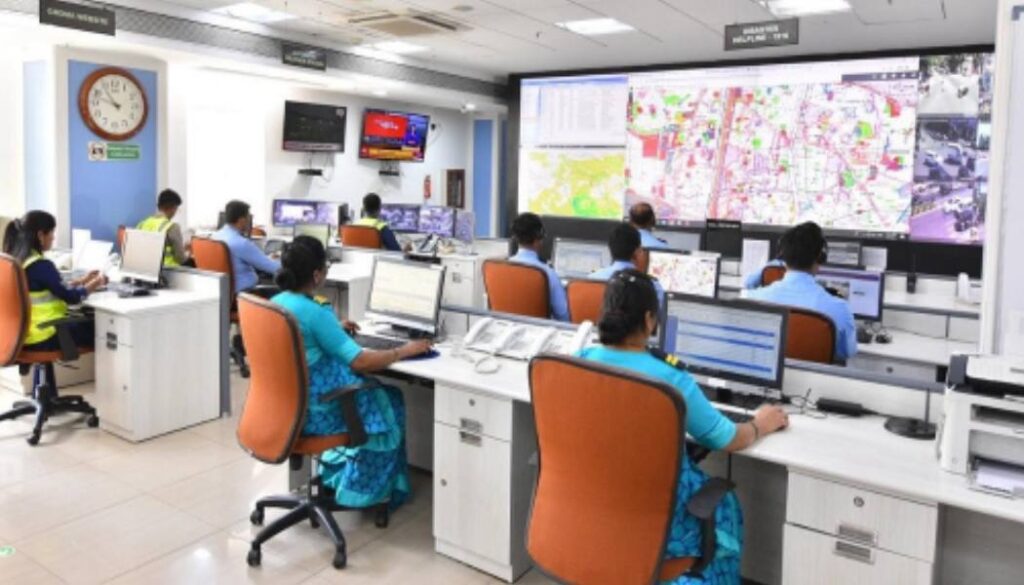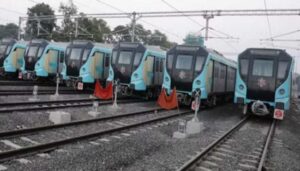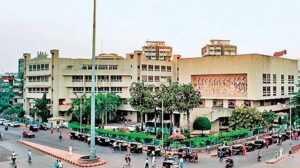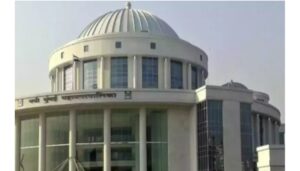Mumbai To Showcase Coastal Road Project At G-20 Disaster Risk Reduction Working Group Meet

Mumbai, 13th May 2023: The upcoming G-20 2nd Disaster Risk Reduction Working Group (DRRWG) Meet in Mumbai from May 23-25, 2023, will feature discussions on the Coastal Road, one of the most significant infrastructure projects in the city. The Brihanmumbai Municipal Corporation (BMC) will present the disaster management measures implemented for the project to the DRRWG delegates. The five key priorities of the DRRWG are early warning, resilient infrastructure, national response, building back better, and nature-based solutions.
The construction of the Coastal Road’s Southern Section, spanning 10.58 km from the Princess Street Flyover to the Worli side of the Worli Bandra Sea Link, is progressing rapidly. Under the guidance of Commissioner and Administrator of BMC, Dr Iqbal Singh Chahal, and Additional Municipal Commissioner (Eastern Suburbs), Smt. Ashwini Bhide, 73.5 percent of the project has been completed. The reclaimed area, covering 119 lakh 47 thousand 940 square feet (111 hectares), will be a valuable addition to Mumbai’s 250 km road network.
Smt. Ashwini Bhide, the Additional Municipal Commissioner (Eastern Suburbs) of BMC, highlighted that the project design takes into account potential disasters, environmental compliance, and citizens’ quality of life. Approximately 13.6% of the project area, equivalent to 15,60,770 square feet (14.50 hectares), has been designated for the construction of a safety wall to protect against sea waves. The 8.5 km long sea-wall has been designed to promote marine life while mitigating corrosion, soil erosion, and tidal effects. Disaster management aspects will be crucially addressed through this feature. The wave wall, serving as a protective barrier, accounts for the highest recorded flood level and will safeguard the city from floods and storm surges. This initiative will not only benefit the Coastal Road but also the surrounding areas.
Stringent fire protection measures have been incorporated into the project. The twin tunnels, spanning 2 km, are equipped with comprehensive fire safety provisions. The Saccardo ventilation system enhances air circulation, ensuring that if a fire occurs in one tunnel, the other remains smoke-free. The entire structure is designed to withstand a 100 MW fire for three hours, utilizing fire retardant materials and fire boards capable of withstanding temperatures up to 1200 degrees Celsius for the same duration.
The project has also provided an opportunity to improve Mumbai’s stormwater drainage network, considering floods and related disasters. As additional land has been reclaimed, the existing stormwater drainage network has been extended beyond the sea wall.
The Coastal Road will establish seamless connectivity between two significant locations in the city, resulting in increased vehicle speed, reduced fuel consumption, and decreased travel time. These improvements will contribute to a reduction in carbon footprint. The project will also feature Mumbai’s largest and most beautiful sea promenade, enhancing the city’s aesthetics and reducing pollution. Travel time from Marine Drive to Worli will be reduced from 50 minutes to 10 minutes, benefiting both commuters and the environment.
Environmental considerations have played a vital role in the project. During construction, two colonies of corals were discovered in the sea, which were not present during the environmental assessment. The National Institute of Oceanography (NIO) successfully translocated these coral colonies to other locations, where they continue to thrive. The project has adhered strictly to the conditions imposed for environmental clearance and encompasses sustainable and resilient design principles to address climate change concerns.
As the construction of Mumbai’s Coastal Road progresses, every precaution is being taken to minimize further environmental damage. The ready-mix concrete plants and casting yards involved in the project are fully covered to prevent air pollution. Additionally, the development plans include the creation of parks along the stretch, aiming to preserve the environment and enhance the city’s beauty.
A notable feature of the project is the 8.5 km wide footpath extending from Worli to Haji Ali to Priyadarshini Park. This pedestrian path will not only offer a comfortable and eco-friendly experience but will also include cycle tracks, open theaters, underground parking, and public toilets. The iconic ‘Worli Sea Face’ will undergo a transformation, becoming more appealing and sustainable than ever before.
Furthermore, a new wide sea walkway, measuring 20 meters in width and spanning 8.5 km, will be constructed along the Coastal Road, making it the longest seaside walkway in the city. This marine walkway, from Priyadarshini Park to Worli Bandra Sea-Link, will be accompanied by cycle tracks, open theaters, parks, playgrounds, and public toilets, providing a recreational space for residents and visitors.
Upon completion, the project will feature a Control Command Centre, which will be connected to the BMC Disaster Control Room and Mumbai Police’s Traffic Control Room. This integration aims to ensure efficient coordination in handling any potential disasters or emergencies. The Coastal Road project is expected to be mostly completed by November 2023.
The DRRWG (Disaster Risk Reduction Working Group) is an initiative undertaken by India during its G-20 Presidency. The first DRRWG meeting took place in Gandhinagar earlier this year. This Indian initiative aligns with the Sendai Framework for Disaster Risk Reduction 2015 to 2030, which aims to protect development gains from the risk of disasters. Endorsed by the UN World Conference on Disaster Risk Reduction, it advocates for substantial reductions in disaster risks and losses across various aspects of life and assets. Recognizing the primary role of the State in reducing disaster risk, it emphasizes shared responsibilities with other stakeholders, including local governments and the private sector.
The meeting will be attended by Kamal Kishore, the Member Secretary of the National Disaster Management Authority (NDMA), which operates under the leadership of the Prime Minister of India as the apex body for disaster management in the country. Delegates participating in the DRRWG meeting will also have the opportunity to visit the heritage-building of BMC and explore the state-of-the-art Disaster Control Room located there, showcasing Mumbai’s preparedness in disaster management.
The Coastal Road project underscores Mumbai’s commitment to sustainable development, environmental preservation, and disaster risk reduction, aiming to create a resilient and livable city for its residents and visitors.
To Receive Daily News Updates About The Mumbai Region, Please Click On The Following Link To Join The Mumbaikar News WhatsApp community.





